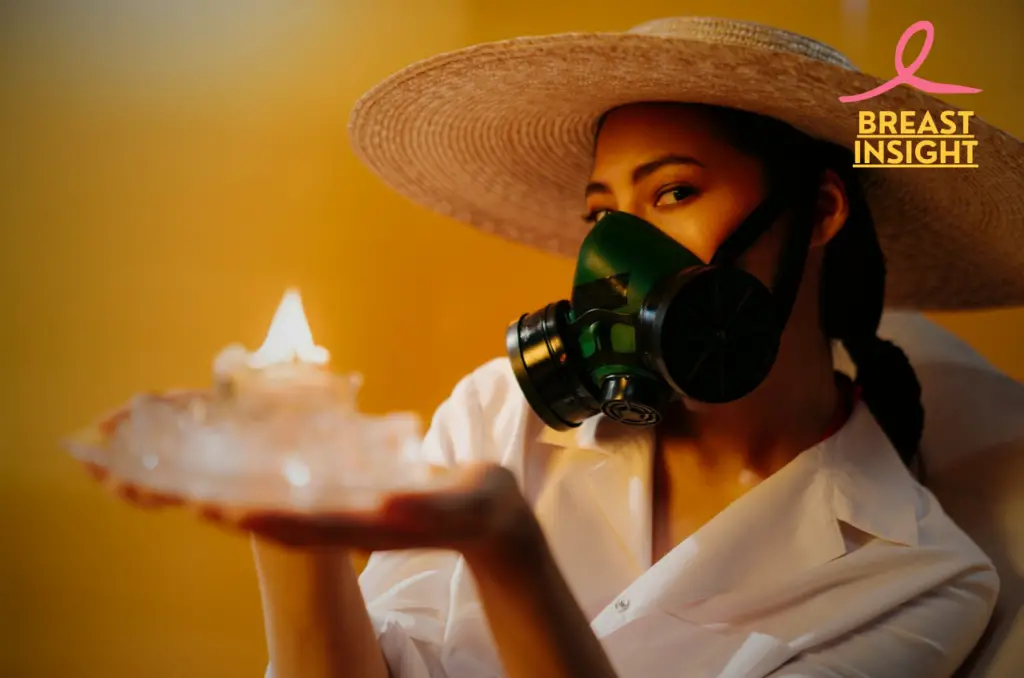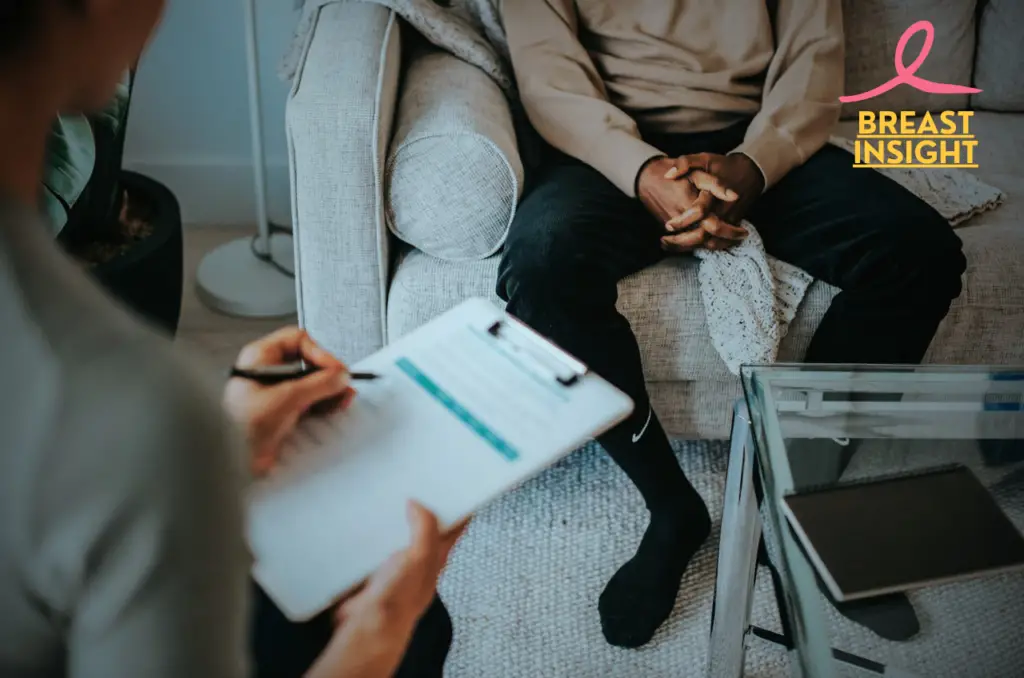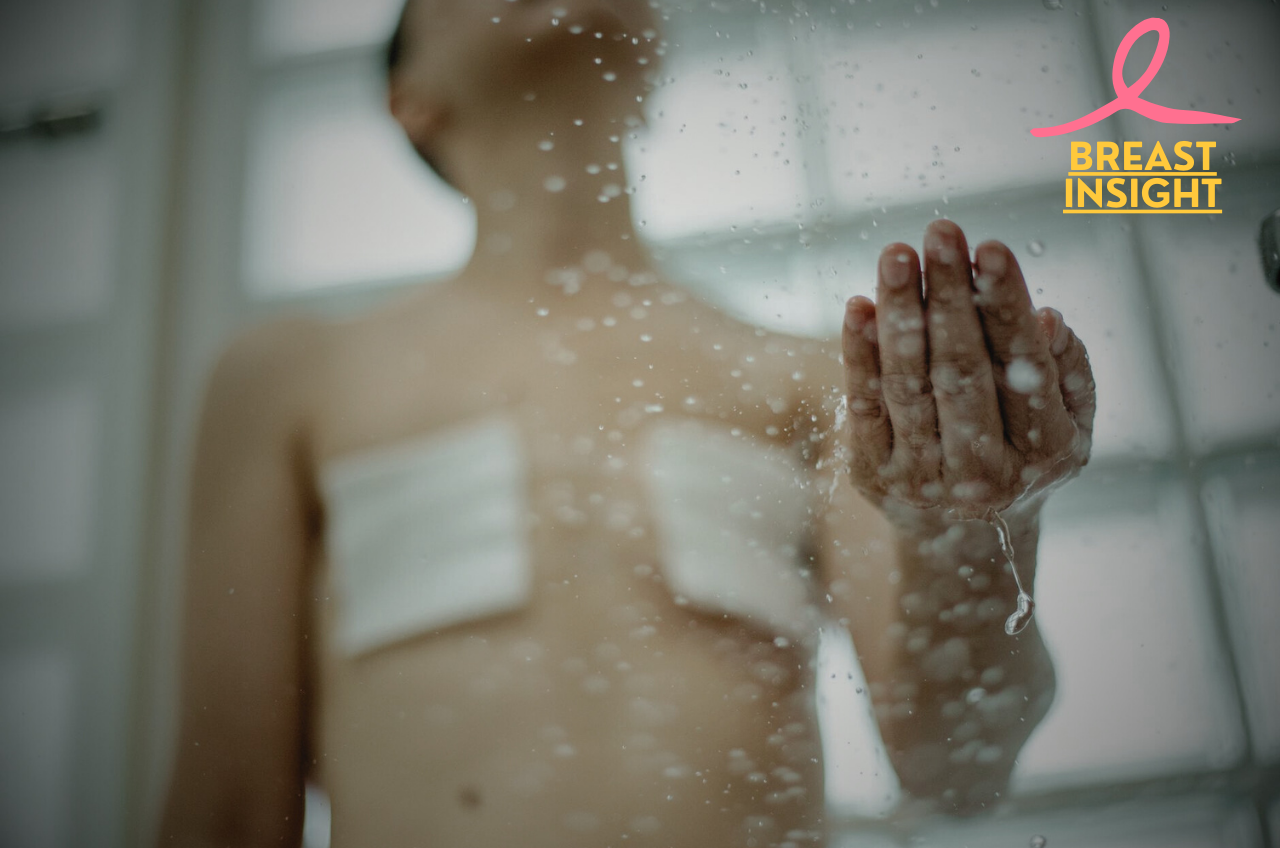Life after breast cancer is quite a different ball game in every way, and certain issues arise concerning intimacy and sexuality. While assuring survival is righteously celebrated and considered the victory, women silently go through the changes in sexual well-being, an important aspect of recovery often just swept under the rug.
At least these changes can, at first, be overwhelming: from your body’s changed shape and hormone lifestyle to emotional obstacles and self-image worries. You may question whether you’ll ever feel “normal” again or intimacy will ever again be like it was. You are not alone in these feelings, but more importantly, there’s hope and help.
This guide covers everything-from managing the physical changes to rebuilding emotional confidence and provides practical strategies for rediscovering sexual life after breast cancer. We will address some critical medical considerations you should know about, and we’ll explore how to build and maintain a strong support system that respects your journey toward sexual wellness. Together, we’ll break down these barriers and walk into this new life as breast cancer survivors.

Physical Changes and Recovery
Understanding Your New Body
Each breast cancer surgery and treatments bring a lot of physical changes that demand time and tolerance. These may include
- Altered breast sensation or numbness
- Changes in breast shape and symmetry
- Surgical wounds.
- Possible lymphedema
- Modified chest muscle strength
If you’d like a refresher on what cancer is and how it affects the body, check out our detailed guide on What is Cancer, Its Causes, Symptoms, and Treatment.
Managing Post-Surgical Pain
The comfort strategies after surgery differ with the nature of the procedure.
| Recovery Phase | Comfort Measures | Recommended Activities |
| Initial (0-2 weeks) | Gentle pillow support, ice packs | Light walking, deep breathing |
| Intermediate (2-6 weeks) | Soft compression garments, gentle stretching | Gradual arm movements, supervised exercises |
| Advanced (6+ weeks) | Scar massage, range-of-motion exercises | Regular physical activity, strength training |
Healing Timeline and Expectations
Most patients heal in well-defined stages:
- Weeks 1-2: Emphasis on wound healing and rest
- Weeks 3-4: Gradually increase movement and activity
- Weeks 5-8: Scar tissue begins to form
- Months 3-6: Continued improvement in flexibility and strength
- Months 6-12: Long-term adjustment and adaptation
Body Image Acceptance
It involves shaping a positive relationship with your body after transformation.
- Acknowledging feelings about physical changes
- practicing self-compassion
- Focusing on function over appearance
- Celebrating healing milestones
- Exploring new ways to feel comfortable and confident
Everyone heals differently. In some instances, the female individual might be ready for a sexual intercourse after having spent a few months in recovery. Some other patients may take longer. The patients are supposed to express themselves and relate their concerns with health care providers about their body’s physical condition.
Physical therapy could play a critical role in rehabilitation, especially with regards to dealing with range of motion issues and preventing lymphedema. Working with a licensed lymphedema therapist or a physical therapist trained in helping breast cancer survivors might provide specific exercises and strategies for adapting to changing physical needs.
Having gained knowledge about the physical recovery, let’s discuss the way such transformations influence emotional well-being and mental health in the process of recovery.

Emotional Well-being
Processing Grief and Loss
Experiencing grief after breast cancer treatment is entirely normal and valid. Many survivors go through various stages of emotional processing:
- Initial shock and denial
- Anger about body changes
- Sadness over lost sensations
- Acceptance and adjustment
If you’re looking for a deeper understanding of breast cancer itself, including causes, symptoms, and treatments, explore our comprehensive guide on What is Breast Cancer? This can provide valuable context as you work through emotional recovery.
These emotions should be acknowledged without judgment. Professional counseling can provide outstanding methods for properly dealing with these emotions.
Building Self-confidence
Restoring self-confidence after breast cancer treatment includes the following important things:
| Confidence-Building Strategy | Benefits | Implementation |
| Mirror Work | Helps accept physical changes | Start with short sessions, gradually increase duration |
| Positive Affirmations | Reinforces self-worth | Practice daily, focus on strength and survival |
| Wardrobe Adaptation | Enhances comfort and style | Invest in properly fitted clothing and lingerie |
| Physical Activity | Improves body image | Begin with gentle exercises approved by healthcare team |
Communication with Your Partner
There can never be emotional healing without frank communication with your partner. Some points to consider are:
- Plan routine “check-in” discussions
- Share feelings and concerns honestly
- Express needs clearly and specifically
- Listen actively to partner’s perspective
- Seek professional couples counseling if necessary
Creating a safe space for vulnerable conversations helps both partners navigate this new chapter together. Many couples report stronger relationships after working through cancer-related challenges together.
Studies reveal that couples who foster openness and communication during the breast cancer recovery journey tend to enjoy intimate relationships with more satisfaction. Discussions over daily activities may gradually grow into more sensitive subjects.
Remember that emotional healing is not a forward process; some days are easier than others, and that is normal. Concentrate on the little victories and also celebrate small moments of improvements.
Let your partner be an ally in your emotional recovery. They may be experiencing their own set of emotions and concerns, making shared vulnerability an opportunity for deeper connection. Having explored emotional recovery, it is now time to focus on the concrete strategies that would aid in sexual intimacy.

Practical Tips for Intimacy
Positions for Comfort
Women recovering from breast cancer surgery need to prioritize comfort during intimate moments. Consider these position modifications:
- Alleviate pressure on the chest areas through side-lying positions.
- Support using pillows under sensitive areas.
- Partner-on-bottom positions which you can have control over movement and pressure.
- Modified sitting positions which allow gentle intimacy.
If you’re interested in understanding the possible causes of breast cancer that might have led to your unique journey, check out our article on the 7 Causes of Breast Cancer You Need to Know.
Pain Management
Managing discomfort is crucial for preserving a vibrant and fulfilling intimate life.
- Warm compresses to the body before sexual intercourse.
- Use doctor-approved pain medication 30 minutes prior to activity.
- Deep breathing during sexual intercourse
- Where necessary, express all your pain points to your partner
Using Support Products
| Product Type | Benefits | Considerations |
| Silicone prostheses | Natural feel, lightweight | Remove during intimacy if uncomfortable |
| Specialized cushions | Provides support, reduces pressure | Choose washable materials |
| Water-based lubricants | Reduces friction, hormone-safe | Avoid products with additives |
| Mastectomy bras | Added support, comfort | Select soft, non-irritating materials |
Setting the Right Pace
Recovery and comfort are subjective to everyone:
- Begin with gentle touching and kisses.
- Gradually rebuild your activity levels as comfort allows.
- Take brakes when necessary
- Don’t rush the process – listen to your body’s signals
- Schedule intimate time when energy levels are highest
Safe Touch Techniques
- Practice this kind of confidence-building:
- Begin with non-surgical areas to build comfort
- Employ gentle massage techniques to alleviate tension.
- Practice mindful touching – focusing on sensation
Alternative forms of intimacy such as:
- Hand holding
- Gentle touch
- Erotic massage
- Intimate conversation
Be sure to discuss your concerns with your healthcare provider, as they can provide personalized advice for your specific situation. Always honor the limits of your body and engage in open communication with your partner about your comfort levels.
Equipped with these practical strategies, you will better be able to deal with the medical considerations that will arise in your passionate journey.

Medical Considerations
When to Resume Activity
Most women can resume safely their sexual activities at about 4-6 weeks following breast cancer surgery, once their surgical sites are well healed. Again, however, this will depend on:
- Type of surgery performed (lumpectomy vs. mastectomy)
- Healing progress
- General physical condition
- Current treatment phase
For a clearer understanding of how different stages of breast cancer influence treatment approaches and recovery, read more on the Stages of Breast Cancer Every Woman Should Know.
| Surgery Type | Average Recovery Time | Medical Clearance Needed |
| Lumpectomy | 4-6 weeks | Yes |
| Mastectomy | 6-8 weeks | Yes |
| Reconstruction | 8-12 weeks | Yes |
Hormone therapy effects
Hormone therapy, needed by many breast cancer survivors, will significantly impact sexual function:
- Low estrogen led to reduced libido.
- Vaginal dryness and discomfort
- Mood changes affecting intimacy
- Hot flashes interrupted their intimate moments.
Common hormone therapies and their effects on sexual health:
- Tamoxifen
- Vaginal dryness
- Alterations in menstrual cycle
- Sexual desire reduction
- Aromatase Inhibitors
- Greater vaginal dryness
- Joint pain affecting positioning
- Increased risk of osteoporosis
Possible Complications
Several medical considerations demand attention when resuming sexual activity:
- Involvement of limb(s) risk of lymphedema
- Sensitivity changes within surgical sites.
- Possible stress at some angles
- Reduced range of motion
Prevention measures include:
- Using appropriate support garments
- Precise placement
- Routine examination of surgical sites
- Communication with healthcare providers
| Complication | Management Strategy | When to Seek Help |
| Lymphedema | Wear compression garments | If swelling increases |
| Pain | Modified positions | Persistent discomfort |
| Limited mobility | Physical therapy | Decreased range of motion |
Medical providers can provide various solutions to these problems, which include:
- Vaginal moisturizers and lubricants
- Pelvic floor therapy
- Pain management techniques
- Altered exercise regimen
For those undergoing radiation therapies, understanding its side effects is especially critical. If this applies to you, exploring the real side effects of radiation therapy can help you anticipate and manage symptoms effectively. Combined with a strong grasp of medical conditions and clear communication with healthcare providers, these measures can support many breast cancer survivors in safely maintaining or rebuilding their intimate relationships.
However, combined with appropriate knowledge of these medical conditions, clear communication with healthcare providers can help many breast cancer survivors maintain their relationships or even rebuild them safely. Now, we turn to the next theme: building an effective support system.

Building a Support System
Professional Counseling Options
Professional counseling provides vital support for breast cancer survivors navigating intimate relationships. Specialized counseling services can help address issues that may arise during recovery, including awareness of symptoms that can sometimes go unnoticed. To gain a deeper understanding of these Hidden Symptoms of Breast Cancer, consider discussing any concerns with your counselor. Consider these specialized counseling services:
- Sex therapists with oncology experience
- Couples counselors familiar with cancer-related challenges
- Psycho-oncologists who specialize in sexual health
- Licensed clinical social workers focused on cancer recovery
Support Groups and Resources
Support groups can be a real source of peer support and practical wisdom. Here’s everything in one place.
| Resource Type | Benefits | How to Access |
| Online Forums | 24/7 availability, anonymity | Major cancer organizations’ websites |
| In-Person Groups | Face-to-face connection, local support | Hospitals, cancer centers |
| Virtual Support Groups | Geographic flexibility, scheduled meetings | Telehealth platforms |
| Social Media Communities | Immediate connection, shared experiences | Private Facebook groups, Instagram communities |
Organizations that provide specific assistance include:
- American Cancer Society’s Reach to Recovery program (ACS)
- Living Beyond Breast Cancer (LBBR)
- Young Survival Coalition (YSC)
- Cancer Support Community (CSC)
Partner Education
Educating partners is central to healing relationships after breast cancer. Partners benefit greatly from understanding the treatment journey, which can include the best breast cancer treatments available and how these might impact intimacy and daily life. This knowledge helps them provide informed support as recovery progresses.
Some areas for partner education include:
- Understanding physical changes post-treatment
- Discover new ways of sharing love
- Recognizing emotional triggers
- Crafting effective communication strategies
These educational resources can benefit the partners.
- Educational workshop tailored for caregivers
- Partner-specific support groups
- E-learning resources and virtual seminars
- Joint counseling sessions
Many of these cancer centers now have partner-inclusive programs addressing:
- Physical closeness issues
- Emotional support strategies.
- Communication techniques
- Body image discussions
- Helpful ideas for providing assistance
Both members in a partnership are normally involved in the recovery process, and with time, check-ins with healthcare providers, counselors, and support groups help achieve progresses with new challenges arising through time.
Now you know how important it is to build a strong network of support relationships. Restoration is a process that requires time, tolerance with each other, and mutual communication between partners.

Conclusion
Treatment of breast cancer provokes considerable changes in close relationship. It does not mean, however, the end of a sexually satisfying life. Keeping awareness of the physical and emotional aspects, together with frank communications with healthcare providers and partners, one can navigate this new experience very effectively.
Remember that the connection after breast cancer varies from woman to woman. There is no specific time frame for reconnecting. All you need is the tools that are available, joining groups, and creating a habit of self-care. With time, understanding, and proper medical advice, you will regain your confidence and develop an intimate relationship on your own terms.
Frequently Asked Questions (FAQs)
Can breast cancer treatment affect my sexual desire?
Yes, chemotherapy, hormone therapy, and radiation associated with breast cancer treatment can cause decreased libido because of hormonal imbalances, fatigue, and emotional distress. Research published by The Journal of Sexual Medicine reports that up to 50% of survivors lose sexual desire altogether. Healing intimacy might involve the help of a healthcare provider about ascertaining problems at a physical level and counseling about emotional factors.
What can I do to improve vaginal dryness?
Vaginal dryness often is an extremely common side effect of treatment for breast cancer. Though they won’t make sex not hurt anymore, water-based lubricants and vaginal moisturizers can minimize the discomfort. When supplementary support is desired, it should be addressed with a provider, as not every survivor will benefit from estrogen therapy-based products. Studies published in Menopause demonstrated the efficacy of these interventions.
Can Sexual Activity Increase the Risk of Cancer Recurrence?
There is no indication that sexual activity increases the risk of recurrence of breast cancer. However, some survivors may have fears about intimacy, which can stem from concerns about their bodies or the fear of recurrence. Addressing these anxieties with a healthcare provider and possibly counseling can help survivors rebuild confidence in intimate relationships.
Are there safe ways to manage body image concerns after breast surgery?
Of course, therapy and counseling groups can be a good tool for improving body image and self-esteem. Other body-positive activities, like yoga or meditation, can also help the survivors rebuild their self-esteem. According to a case study published in Psycho-Oncology, many survivors depend on other survivors who know their experiences, a source of validation and support.
When Should I Seek Professional Help for Sexual Challenges?
Sexual side effects like pain, dryness, or low libido are an indication to see a healthcare provider. Sexual health experts, oncologists, and therapists have individualized solutions available to patients, from medical therapy to counseling. According to research in The Oncologist, sexual problems addressed early on lead to better outcomes regarding sexual well-being and overall quality of life.


7 thoughts on “Sexual life After Breast Cancer: Common Pitfalls and Powerful Solutions”